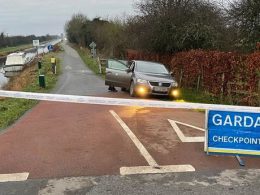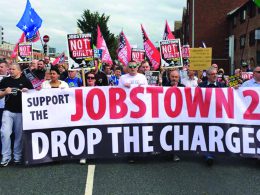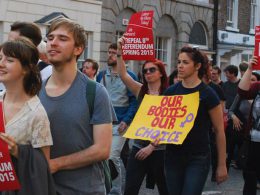By Jonathan Diebold
Why did a bill ostensibly on judges’ pensions, crammed through the Dáil at breakneck pace, raise serious concerns with human rights organisations? One particular amendment to the opaquely named “Courts, Civil Law, Criminal Law and Superannuation (Miscellaneous Provisions) Bill,” added into the omnibus bill at the last moment, altered a nearly 70-year-old provision dealing with the state’s power to revoke citizenship.
Under the original rules, there are several circumstances in which the Minister for Justice can revoke the citizenship of a naturalised citizen, including when someone has “shown [themselves] to have failed in [their] duty of fidelity to the nation” (extremely vague grounds wide open to abuse), or if that person is a citizen of a country at war with Ireland, as well as in cases of fraud.
What’s in the new Bill?
The new legislation, now due to be signed into law by the President, makes revocation far quicker, giving people only 28 days to lodge a written plea. If they are able in that paltry span of time to pull together a case, it will be put before a committee appointed by the Minister herself, who will decide whether to uphold the Minister’s decision. If so, someone threatened with this will have only two weeks to respond. Not only this, but the Minister can now choose to ignore the whole procedure on ill-defined “national security” grounds.
The process for revocation has only been carried out eight times, several of which were voluntary. In 2021, the Supreme Court found that the current citizenship revocation process was unconstitutional – it was not sufficiently independent and lacked sufficient safeguards for those affected. On 2 July, this bill was debated in the Dáil for the first time, having passed through the Seanad within a week. However, the amendment in question was only made available to TDs on 8 July and to the public on the following day. On 10 July, the Bill, amendments and all, passed through the Dáil, giving TDs two days – and the public one day – to consider the ramifications of this and to propose changes.
Two-tier citizenship
Why did the Department need to ram through a new, even stricter process, having waited three years? Migrant and refugee rights group Nasc said it was not aware of any engagement with civil society groups or human rights experts in the writing of this amendment. The Irish Human Rights and Equality Commission raised significant concerns about both the lack of scrutiny on the Bill and the wide-ranging powers granted to the Minister to determine how citizenship can be revoked, as well as the vague grounds for doing so, saying in a letter to Minister McEntee “this legislation could facilitate the use of revocation in circumstances where it is not warranted.”
It would seem this change, which impacts a negligible number of people and is likely to be challenged in the courts, does nothing but send a further signal from the government that it is willing to make concessions to the far right, framing immigration as a problem to be solved, and plays to the racist idea that naturalised citizens aren’t “real” citizens, but rather potential threats. It will also help fuel a racist narrative more generally in society.
State racism
This disgusting line of argument reflects the government’s lurch to the right more generally. Shamefully, Sinn Féin also supported this measure. In the last year, Sinn Féin has also more and more fed into the talking points of the far right rather than challenge them. For example, it has spoken of opposing (non-existent) open borders when, in fact, the Irish capitalist state and the EU have deeply racist and draconian immigration policies.
It is not immigration that is straining our healthcare system or causing the housing crisis. It’s decades of government underfunding and austerity that have undermined public funding and favoured profits over people’s needs. Meanwhile, the richest two billionaires in Ireland have wealth greater than the 50% of the population in the lower income bracket. This represents the real problem for working-class people.
We must reject all racist scapegoating and discriminatory measures against the most vulnerable people in our society. The rottenness of the political establishment who are playing to the far-right playbook cries out for a socialist alternative to its rule.












